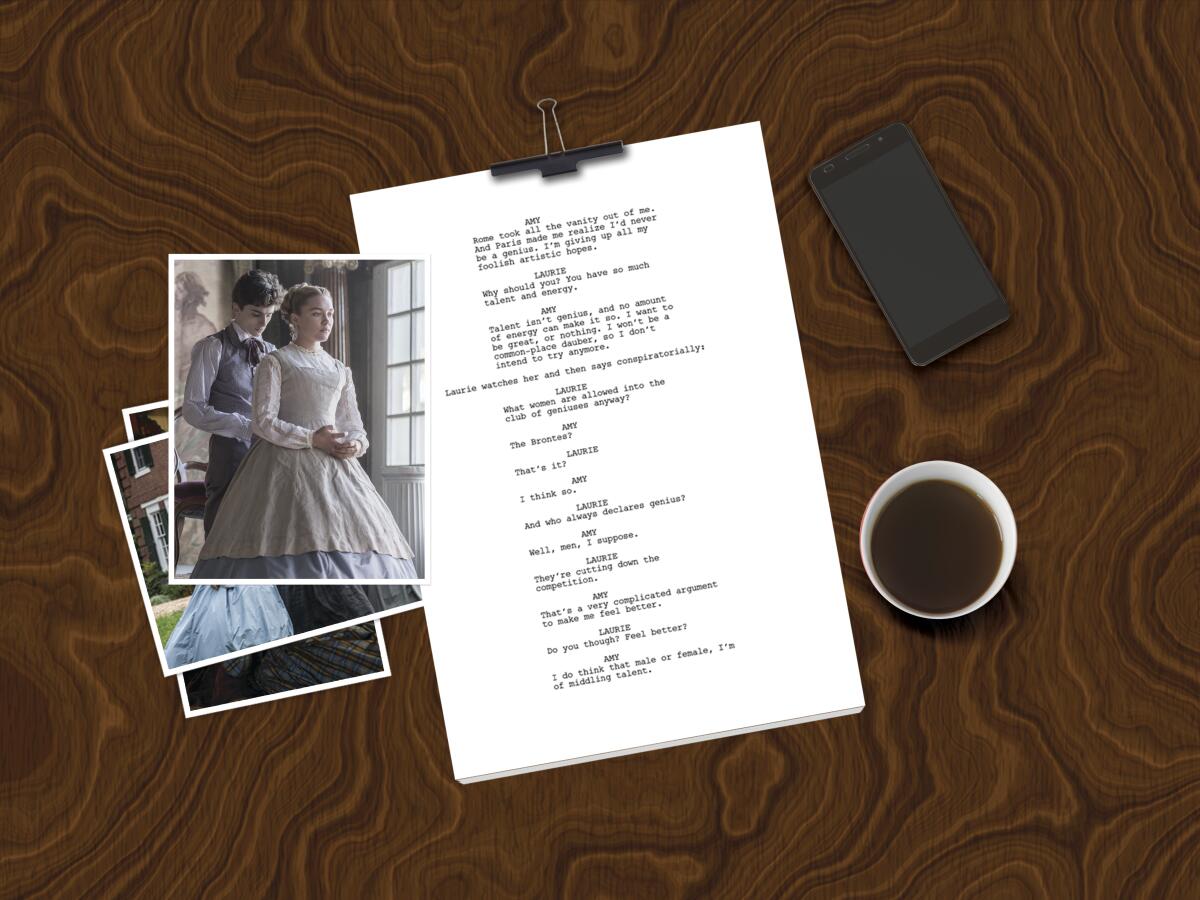What ‘Little Women’ scene impacted you? Here’s one that moved Greta Gerwig

- Share via
Writer-director Greta Gerwig, who earned her third Oscar nomination, for her script adaptation of Louisa May Alcott’s beloved novel “Little Women” (her first two were for penning and directing 2017’s “Lady Bird”), complemented the book’s text with her own words and structural shifts in what’s been widely hailed as a masterful retelling of the timeless tale.
Gerwig spoke with The Envelope about one of her favorite scenes, in which a disillusioned Amy March (Florence Pugh) meets up with future husband Laurie (Timothée Chalamet) in the Paris art studio where she’s been honing her talent as a painter. We’ll let Gerwig take it from there:
Seven seasoned film journalists predict the winners in 10 Oscar categories. Vote for your picks!
“Part of the reason I picked [this scene to discuss] is because I think it’s really extraordinary the way Florence Pugh performs the speech [at the end], where she talks about the economic realities of women … how she’s going to marry rich and Laurie says, ‘Shouldn’t you be in love?’ and she says, ‘The situation for me as a woman is that I can’t make my own money — I just can’t.’
“There are moments in the scene that are shockingly modern to me and feel different than the kind of stereotypical idea of Amy March. … I was looking at these lines and I was like, ‘This is not a shallow, frivolous person. This is a person who’s deeply aware of what was going on in the world and her place in it.’
“There’s something so modern about her saying, ‘I want to be great or nothing.’ It’s wildly ambitious. It’s taking her artistic intent seriously. And it gets to this idea that, whether you’re a man or a woman, measuring yourself against greatness, that’s a serious proposition and that’s what she’s doing. I think it’s a struggle that’s beyond gender, that thing of, ‘Is my contribution as good as the thing that made me want to do it in the first place?’
“Perhaps that is the difference between her and [older sister] Jo. Jo doesn’t want to be not a genius but she’s willing to be bad if she can just keep doing it. And for Amy it’s too painful. And, I don’t know, I think that’s fascinating.”
More to Read
Only good movies
Get the Indie Focus newsletter, Mark Olsen's weekly guide to the world of cinema.
You may occasionally receive promotional content from the Los Angeles Times.











